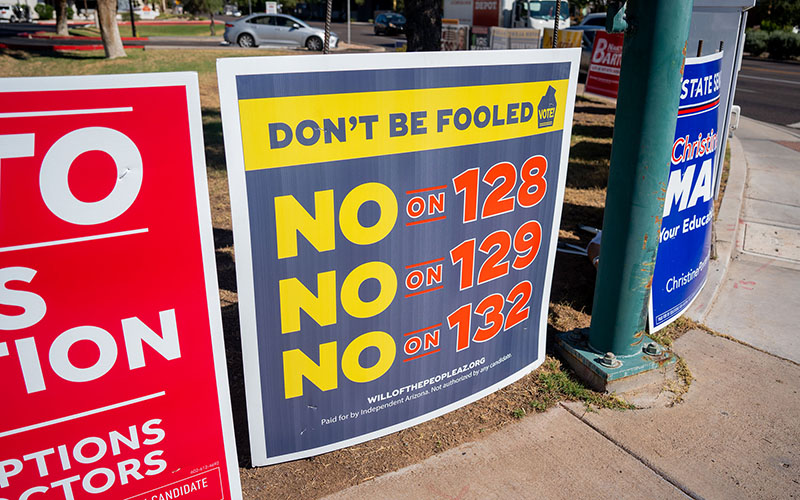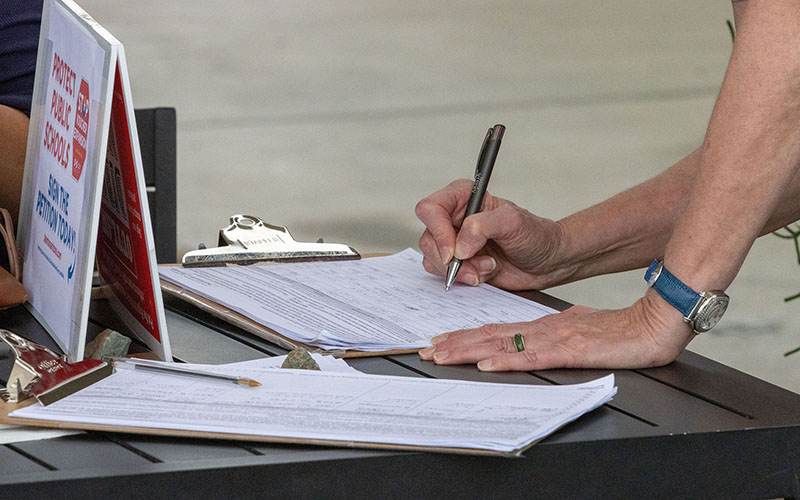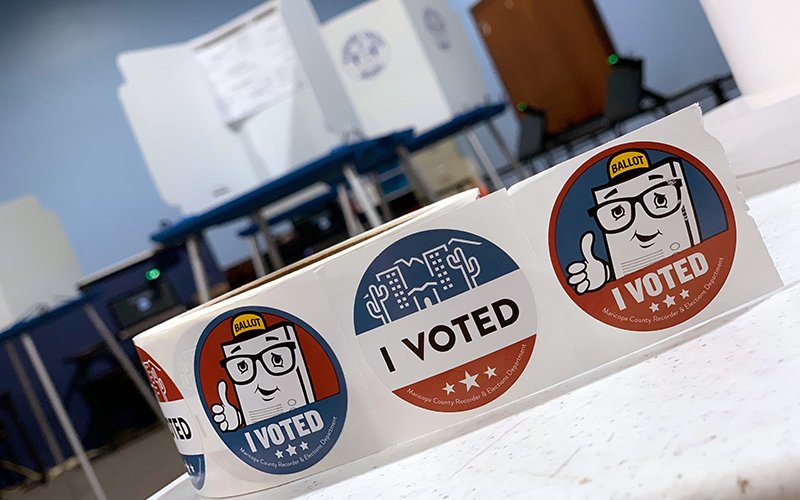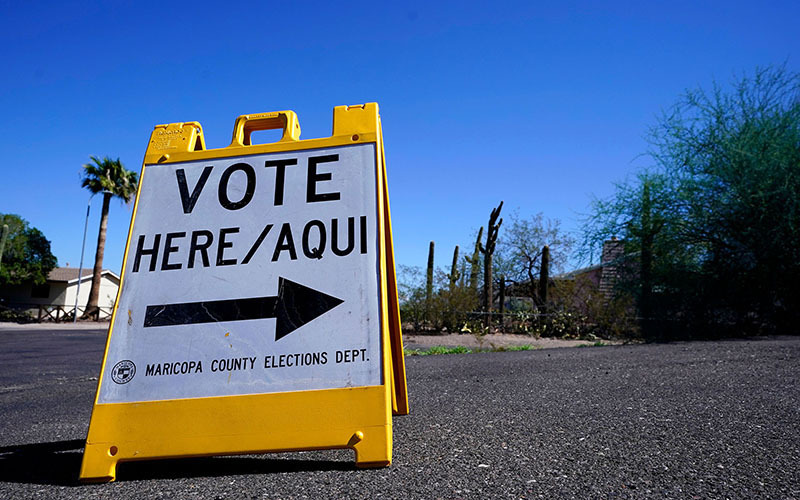WASHINGTON – Proposition 129 asks just one question: Whether or not all future ballot initiatives should ask just one question.
The proposition would amend the Arizona Constitution to require that any ballot initiative be limited to just one subject, a move supporters say will make the process more accessible for voters by simplifying what could be an unwieldy issue.
“It would make it a lot clearer for voters and it would align the initiative process more closely with what has generally worked,” said Suzanne Kinney, CEO and president of the Commercial Real Estate Development Association’s Arizona chapter.
But critics see it as another attempt, along with propositions 128 and 132, to increase the Legislature’s power at the expense of voters this fall.
“If you’re a state legislator, and you would prefer to have total control over the policymaking process, then you prefer to have people … keep their hands off your legislation,” said Stefanie Lindquist, an Arizona State University professor of law and political sciences.
Besides Proposition 129, which was introduced by Rep. John Kavanagh, R-Fountain Hills, both propositions 128 and 132 came out of the 2021 session of the Legislature. Proposition 128 would make it easier for lawmakers to change voter-approved initiatives, something that is currently almost impossible, while Proposition 132 would raise the bar for voter-approved tax increases, from the current simple majority to 60% approval.
Arizona Rep. Reginald Bolding Jr., D-Laveen, said those propositions are a reaction by state Republicans to recent progressive successes at the ballot box, including measures to raise the minimum wage, tax high earners and legalize medical and recreational marijuana.
“Arizona is a much more progressive place than people would think,” said Bolding, the House minority leader. “It is absolutely terrifying and scaring the old boys club that has always called the shots here in Arizona.”
Pinny Sheoran, the president of League of Women Voters of Arizona, said Proposition 129 has its roots in Proposition 206, which raised the minimum wage t0 $10 and created a right to paid sick time.
It passed with 58% of the vote but was challenged in court by business groups, who argued that it addressed two separate subjects and was therefore unconstitutional. The courts rejected that argument and ruled the initiative could stand in 2017.
Sheoran, an opponent of Proposition 129, said it would give business groups another tool to block complex, worker-friendly initiatives. And she asked who would determine whether an initiative is “single subject” or not, pointing to Proposition 206 as an example.
“Who is to say that … when the proposition was passed to raise the minimum wage and family leave, that should have been separate or are two different subjects?” Sheoran asked. “How are they? People who are working want a living wage, and they want to be able to take care of their families.”
That point was echoed by Lindquist, who said “single subject is often in the eye of the beholder.”
“It gives people who want to challenge initiatives in court more workarounds to challenge an enacted or adopted constitutional amendment,” she said.
But Kavanagh said the only thing his legislation responds to is the state supreme court decision that said the single-subject rule does not apply to citizen-initiated statutes. He rejected arguments that the proposition would limit ballot measures to a narrow issue, saying it will instead restrict them to single topics.
“It is the single-subject rule, not a single-provision rule,” Kavanagh said. “You can have as many provisions as you want, as long as they stay within one general subject area, like education or health or criminal justice or whatever.”
Supporters like Kinney cast Proposition 129 as “an issue of fairness to voters.” Not only will it simplify the ballot, she said, but it will also mean those questions will not have some elements voters may like, and some they may hate.
“When we see many different concepts thrown into a single ballot initiative … voters are stuck making a decision to accept things they really don’t like in order to get the ones they do,” Kinney said.
She and other supporters – including groups like the Arizona Free Enterprise Club, the Arizona Chamber of Commerce and Industry and the Center for Arizona Policy Action – argue that the proposition would bring voter initiatives rules in line with those placed on the Legislature, which limits all statutes to a single subject.
But opponents noted that voters face hurdles that lawmakers do not. While legislators can introduce multiple bills at once to legislate on several topics, every voter initiative is the product of a long and costly process of collecting and submitting hundreds of thousands of petition signatures.
An initiative proposing a new law requires signatures from 10% of registered voters, currently 237,645, while a proposed constitutional amendment requires 15%, or 356,467, according to the secretary of state’s office.
Francisco Pedraza, associate director of the Center for Latina/os and American Politics Research, calls the proposition an effort to “chip away at the robustness of the ballot initiative.”
“The power of the people to bring legislation would still be there, but now it would be narrowed,” Pedraza said. “The power that the representatives have in the state Legislature … would increase slightly.”
Sheoran rejects the argument that a single-subject rule would make the process easier on voters.
“That’s the risk any valid campaign takes, that the proposition it brings forward is not well understood,” she said. “Having a single subject does not in any way guarantee that a voter will be better informed.”
If passed, Arizona would join 16 other states with single-subject rules, like California, Nevada and Florida. It’s a move Sheoran thinks is unnecessary for Arizona voters.
“I trust the voters,” she said. “Voters are not stupid.”







